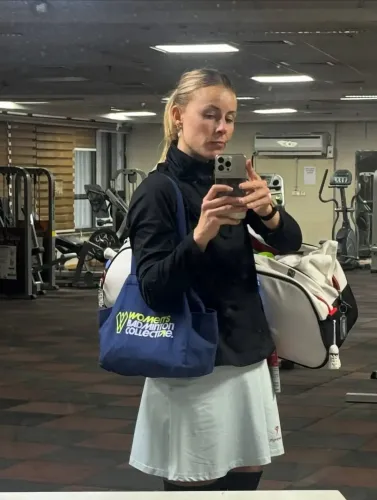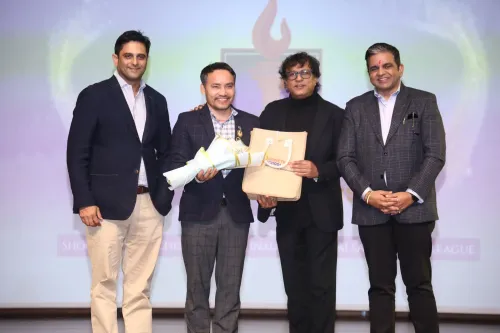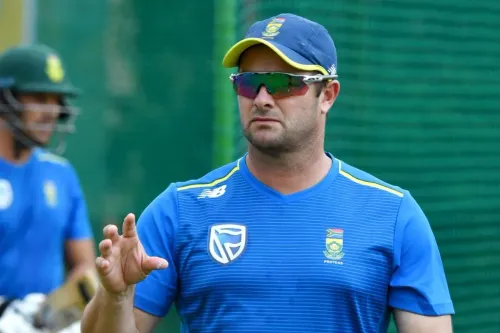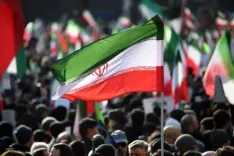Kirsty Coventry: A Trailblazer, Advocate, and Visionary Leading the IOC Forward
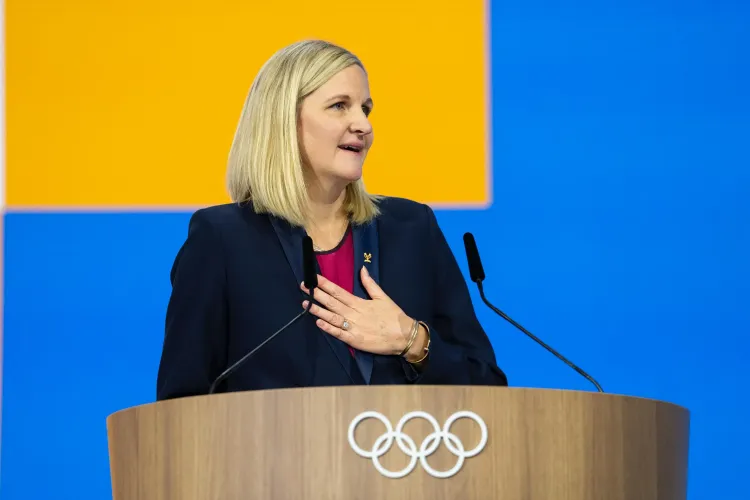
Synopsis
Key Takeaways
- Kirsty Coventry becomes the IOC's first female and African president.
- Her Olympic journey began in Harare, Zimbabwe, with dreams sparked by the 1992 Barcelona Olympics.
- She won Zimbabwe's first Olympic medals in swimming at the Athens Games.
- Coventry emphasizes sport's role in bridging divides and fostering unity.
- Her foundation supports underserved youth in Zimbabwe through sports.
Beijing, April 2 (NationPress) The moment Kirsty Coventry addressed the members of the International Olympic Committee (IOC) in January, her words resonated with the essence of a life dedicated to breaking barriers. "I've experienced the transformative power of sport," she stated, her voice unwavering yet infused with the passion of an athlete-turned-leader.
In the following weeks, that fervor led her to a groundbreaking achievement -- the seven-time Olympic medalist and former Zimbabwean Minister of Youth, Sport, Arts, and Recreation was elected as the IOC's first female and African president, garnering 49 votes in a pivotal decision that could redefine the 131-year-old organization.
Covenant's ascent to the summit of international sports began not in corporate offices, but in the sunlit pools of Harare. She was taught to swim by her mother and grandfather by the age of two, joining her first swim club by the age of six, as reported by Xinhua.
However, it was the 1992 Barcelona Olympics, seen on a blurry TV screen when she was only nine, that sparked her aspiration. "I told my parents, 'I want to go to the Olympic Games and win Zimbabwe a gold medal.' They smiled and responded, 'It'll take hard work and sacrifice.' I nodded, thinking, okay."
That unyielding ambition propelled her through five Olympic Games. At the age of 16, she made her Olympic debut in Sydney in 2000, wide-eyed in a 14,000-seat arena filled with legends like Susie O'Neill. Four years later in Athens, she fulfilled her childhood dream, securing gold in the 200m backstroke, silver in the 100m backstroke, and bronze in the 200m individual medley, marking Zimbabwe's inaugural Olympic medals in swimming.
"Standing on the podium felt surreal. I thought of that nine-year-old girl. Now at 21, I achieved my goal and dream," she reminisced, her voice softening.
Her return home illustrated how sport can unite individuals. Crowds flocked to Harare's airport, forcing her plane to halt on the tarmac. "People expressed, 'Thank you. We're proud.' It was incredible to witness the unifying power of sport in breaking down barriers."
"This is part of why I chose to run for IOC presidency. I believe the Olympic Movement can bridge divides and restore trust within communities, showcasing humanity's best," the 41-year-old added.
Yet, it was the Beijing 2008 Olympics that solidified her legacy, where she captured one gold and three silvers, shattering two world records - a memory that still brings joy to her face.
"Whenever I discuss Beijing 2008, I can't help but smile," she shared with Xinhua. "It offered me so much." That success served as a catalyst, leading her to become an IOC athlete member in 2013. "Swimmers and Olympians recognized me because of Beijing. It opened up an amazing platform for my journey."
As a catalyst for change, Coventry has long been dedicated to reforming systems. After retiring in 2016, she established a foundation to teach swimming and various sports to Zimbabwe's underserved youth aged six to thirteen and trained coaches across the nation.
Her most daring transition occurred in 2018 as Zimbabwe's Minister of Youth, Sport, Arts and Recreation, where she initiated legislation against match-fixing and abuse. Her leadership saw the dissolution of Zimbabwe's football federation due to sexual abuse scandals, a decision that led to an 18-month FIFA suspension but received global acclaim. "Was it a tough choice? No. It was the right choice," she asserted.
Coventry's shift to the IOC presidency, succeeding Thomas Bach, is already in progress. "We've started exchanging ideas with President Bach on navigating the upcoming months," she stated. "We'll collaborate on decision-making."
Her move to Lausanne in early April signifies a new chapter in her professional life, but family remains her guiding force. For Coventry, home is not merely a place, but a shared commitment. "My husband and I have always agreed: it doesn’t matter where we are, as long as we are together," she elaborated.
This principle extends to her leadership and motherhood. "I want my daughters to grow up knowing they can be whoever they want and achieve whatever they desire."


